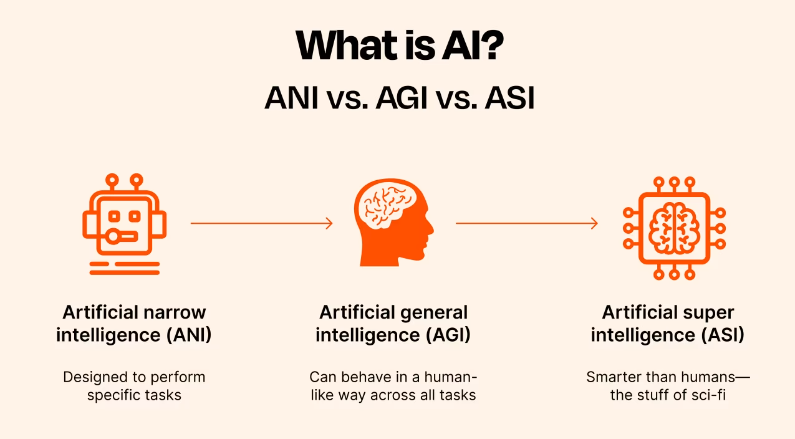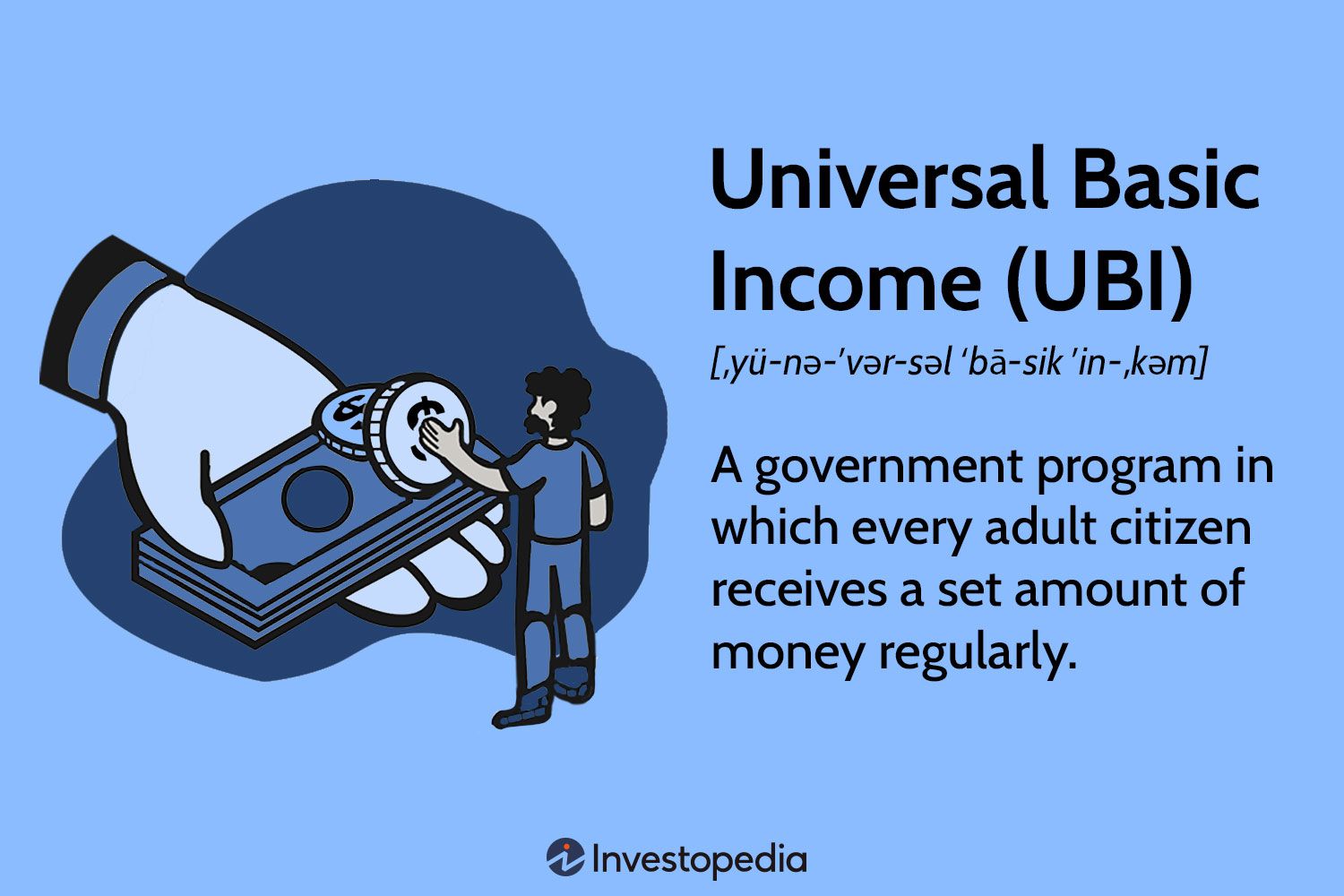Imagine a world where AI not only exists but dominates every aspect of human life and business. It sounds like science fiction, right? Yet, here we are, standing on the precipice of an era where this very concept could become our reality. The journey from imagination to implementation has been nothing short of extraordinary.
Honestly, it’s hard to catch your breath with how fast technology moves these days. One day, you’re totally wowed by what your smartphone can do; the next, you find yourself wondering if AI is about to sprint past human smarts in every way imaginable.
For entrepreneurs, founders, and marketers like us, what does this new society mean?
Let’s be clear: no one can predict the future with absolute certainty. However, by examining current trends and advancements in artificial intelligence, we gain invaluable insights into what lies ahead.
This isn’t just about robots taking over mundane tasks or software optimizing business operations anymore. We’re talking about reshaping economies, redefining industries, and fundamentally altering the fabric of society itself. The potential is enormous, but so are the challenges ahead. We need to be ready for what’s coming and start thinking now about how we can shape this future in a way that benefits everyone.
Table Of Contents:
- The Acceleration of AI and Its Implications
- Embracing a World of Abundance
- Navigating Job Transformation in the AGI Era
- Preparing for the Arrival of AGI
- Policy Frameworks and AGI
- Are You Ready for Life After AGI?
The Acceleration of AI and Its Implications
The rapid advancement of AI technologies is reshaping industries, economies, and the workforce at an unprecedented pace. It’s not just changing the game – it’s creating entirely new playing fields.
The implications are vast and far-reaching, touching every aspect of our lives.
AI’s growth trajectory is outpacing previous technological revolutions. What took decades in the past is now happening in mere years or even months. Innovation is racing ahead at full throttle, making heads spin with all the breakthroughs popping up left and right.
Take a moment to appreciate the leaps we’ve made in understanding human language, interpreting images and videos, and even in robotics. AI systems can now understand and generate human-like text, recognize objects and faces with incredible accuracy, and perform complex tasks that were once the exclusive domain of humans.
And this is just the tip of the iceberg.
As AI advances, it’s transforming traditional job roles and creating entirely new industries. Automation is replacing repetitive tasks, freeing up humans for more creative and strategic work. At the same time, it’s shaking things up a bit when it comes to jobs in certain areas.
But, it’s not all doom and gloom; AI is opening doors we didn’t even know were there.
According to the World Economic Forum, AI could create 97 million new jobs by 2025. These positions will call for fresh skills and the ability to adapt, yet they open up thrilling opportunities for both personal growth and creative breakthroughs.
Embracing a World of Abundance
While the challenges posed by AI and AGI are significant, so too are the opportunities. AI has the potential to unlock unprecedented levels of abundance, transforming scarcity into surplus across various sectors. From healthcare to education to energy, AI can help us solve some of the world’s most pressing problems.
For example, AI-powered drug discovery platforms can accelerate the development of new medicines, making treatments more accessible and affordable. AI can also optimize agricultural practices, increasing crop yields and reducing waste.
In the field of energy, AI can help us transition to clean, renewable sources by optimizing grid management and predicting energy demand.
And in education, AI can personalize learning, making high-quality education more accessible to everyone, regardless of their background or location.
The possibilities are endless. By embracing AI and directing its development towards the greater good, we can create a future of abundance and shared prosperity.
Sure, it’s going to be tough, but imagine the future we could have if we stick with it.
Navigating Job Transformation in the AGI Era
As AI becomes more integrated into our daily lives and economies, certain job roles are bound to evolve or emerge. It’s not about replacing humans but rather enhancing what we do.
Think about it – when computers first came out, people feared losing their jobs. But instead, it created entirely new industries.
With AGI, we’ll see a similar trend. As we move forward, expect jobs that need a dash of creativity, the warmth of empathy, and the knack for solving tricky problems to become even more precious.
Imagine an AI-assisted designer who can create stunning visuals in a fraction of the time. Or a therapist who uses AI to analyze patient data and provide personalized treatment plans.
Future-Proof Careers
So, what careers are likely to remain essential and grow in the age of AGI?
Think jobs that require uniquely human skills. Just like those awesome teachers who light up young minds and guide them, nurturing their potential every step of the way. Or social workers who provide support and guidance to those in need.
Healthcare professionals, especially those in mental health and eldercare, will be in high demand. With an aging population and increasing mental health awareness, we’ll need more humans to provide compassionate care.
And let’s not forget the tech sector. As AGI advances, we’ll need skilled professionals to develop, manage, and maintain these systems. Roles like AI ethicists, data scientists, and machine learning engineers will be crucial in shaping the future of AI.

Preparing for the Arrival of AGI
As entrepreneurs and business owners, we need to start preparing for a future where Artificial General Intelligence (AGI) plays a central role. AGI refers to AI systems that can perform any intellectual task that a human can. While we’re not there yet, the progress towards AGI is accelerating.
Timing Is Everything
Assessing the potential timelines for AGI’s development is crucial for strategic planning. Experts like Ray Kurzweil, Google’s Director of Engineering, believe that computers will have human-level intelligence by 2029 while others believe it may take longer.
Regardless of the exact timeline, it’s essential to start preparing now. This means investing in AI research and development, building AI capabilities within your organization, and staying ahead of the curve. The companies that are proactive in embracing AI will be the ones that thrive in the AGI era.
Policy Frameworks and AGI
As AGI becomes a reality, it’s crucial to stress test our financial and economic policy frameworks. There’s a good chance AGI is going to shake up the job market, transform how we work, and even make the gap between rich and poor wider. What we need are policies that can roll with the punches and adapt as things change.
We’re diving into exciting concepts, too, like how everyone could get a paycheck just for being part of society (universal basic income), programs that teach people new skills for the ever-changing job market (reskilling), and fresh ways to think about taxes.
It also means ensuring that the benefits of AGI are distributed fairly and that no one is left behind. Lawmakers must craft solid plans for when AGI starts changing the game.
Upskilling and Reskilling
One key area is education and skills training. Policymakers need to invest in programs that equip workers with the skills needed for the jobs of tomorrow. This includes not just technical skills but also soft skills like creativity, critical thinking, and emotional intelligence.
Economic Stability
Another important aspect is ensuring economic stability in the face of rapid technological change. Policymakers need to develop strategies that mitigate the risks associated with job displacement and income inequality.
This could involve measures like strengthening social safety nets, promoting entrepreneurship, and incentivizing companies to invest in worker retraining.
Universal Basic Income
Policymakers could also explore innovative solutions like universal basic income (UBI) to provide a financial cushion for those affected by job losses.
UBI is a system where every citizen receives a fixed amount of money, regardless of their employment status. It’s not a new idea – it’s been around since the 16th century. But with the rise of AGI, it’s gaining traction as a potential solution to job displacement.

Imagine a world where everyone has a safety net – a guaranteed income to cover their basic needs. It would give people the freedom to pursue their passions, start businesses, or even go back to school.
Sure, rolling out Universal Basic Income isn’t a walk in the park. Switching things up big time would mean we’d have to totally redo how our welfare and tax systems work right now. But several countries, like Finland and Canada, have already started pilot programs to test its feasibility.
As we navigate the uncharted waters of AGI, UBI could be a lifeline for those most vulnerable to job displacement. It’s a bold idea but one worth exploring as we strive to create a future that works for everyone.
Collaboration between policymakers, industry leaders, and academia will be key in navigating the challenges and opportunities presented by AGI. So, if we all put our heads together, imagine the kind of future we could build where everyone gets a slice of the AGI pie.
Are You Ready for Life After AGI?
Forget the Hollywood horror stories; AI isn’t about to summon a robot apocalypse. Far from it, actually. This journey through the acceleration of artificial intelligence has peeled back the curtain on how deeply integrated and fundamentally beneficial AI is becoming in our lives and businesses.
From reshaping industries to revolutionizing job roles, AI stands not as a threat but as an invaluable ally. It’s subtly weaving itself into the fabric of daily life, turning what was once deemed impossible into tangible realities.
The key takeaway? Welcome this change with both arms wide open and your thinking cap on.
To all you entrepreneurs out there: this isn’t just another tech trend. It’s your cue to innovate, adapt, and thrive in an era where AGI could redefine success across sectors. Let’s use these insights not as warnings but as blueprints for building a future that leverages AI for growth, prosperity, and societal betterment.
Stay one step ahead with WorkMind’s blogs, crafted to deliver real results for students and professionals. See what we have in store for you.